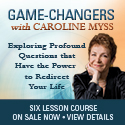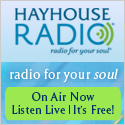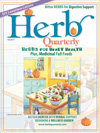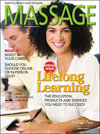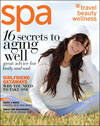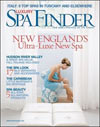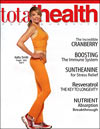Whenever a new student comes to me, I explain before we begin that if their only goal is to get a certificate, they can just design and print one for themselves without a teacher. I don't recommend that, but I bring it up because with Reiki, there is no way to tell from looking at a practitioner's certificate how much training they've had, or their teacher has had, what the quality of that training was -- or even if the student and teacher have ever met in person. Certificates are usually dated, so it is possible to find out how long it's been since a practitioner was trained, but that doesn't give people much to go on, either.
That's why we've decided to make the certification for
The Reiki Dojo's new Reiki Update Training more meaningful. And we'll be offering the training as a teleclass so that practitioners can join us from anywhere. Students who successfully complete all course requirements will receive a certificate to prove they've done so: and one of those course requirements will be a final exam. Those who pass it will not only receive a certificate, but they'll be eligible for our referral list and other benefits. We will stand behind that certificate by confirming, by phone, email, or on paper, to clients and students that the practitioner whose name is on it has met certain standards.
Practitioners from all lineages are welcome to sign up for the Reiki Update Training classes, but for now we'll be admitting only Level 2 practitioners or above, and we will need a copy of your Reiki certificate when you register.
So, has it been more than a few years since your Reiki training?
Did your teacher tell you Reiki founder Mikao Usui was a Christian minister, university president and medical doctor?
Were you taught that Reiki was an ancient Tibetan Buddhist practice that Usui "rediscovered" while studying sutras in Sanskrit at a Christian university in Chicago? Or that Reiki wasn't practiced in Japan after 1940?
Or, for whatever reason, has your personal Reiki practice become something you used to do?
If you answered yes to any of those questions, it may be time to update your Reiki training with this new refresher course from The Reiki Dojo and The Reiki Digest, open to all who have completed Level 2 or above in any lineage.
It's not your original Reiki teacher's fault if what you learned back then turns out not to be the case -- a lot of new information about Reiki, and about Usui, has come out of Japan in recent years. But some of that turns out to be misinformation as well. So what's a Reiki practitioner to do?
You may not have time to keep up with all the news and research about Reiki, but we'll be glad to share the highlights of what we've learned from our ongoing research to bring you up to date. And we'll work together on some ways to get your Reiki practice going again.
Continuing education and training updates are a normal part of most respected healing practices. We believe it's time Reiki practitioners had the opportunity to keep their training current as well.
In this class, you'll learn:
* The documented history of Reiki
* The truth about the most common Reiki myths
* Where to find credible information
* How to keep yourself informed on further developments
* Highlights of the latest Reiki medical research
* Traditional Reiki meditation techniques
* How to get the most out of your personal practice
. . . and much more.
This course will take your practice, and your understanding of Reiki, to a new level, and if you pass the final exam, you'll receive a certificate to confirm that your training is up to date. The course is an update only.
And if you're a Level 2 practitioner thinking of advancing to the next level, a Reiki Master looking to retrain in another lineage, or considering other advanced Reiki training, we can share the benefit of our training in multiple lineages to help you find the advanced training program that's best for you.
Class fee: $65 (includes cost of certificate if you pass the final exam)
Early bird discount: Register by June 1, 2009, and pay only $45 (includes cost of certificate if you pass the final exam)
For more information, email info@reikidojo.net or call 917-512-1330 or toll-free in the U.S.)











